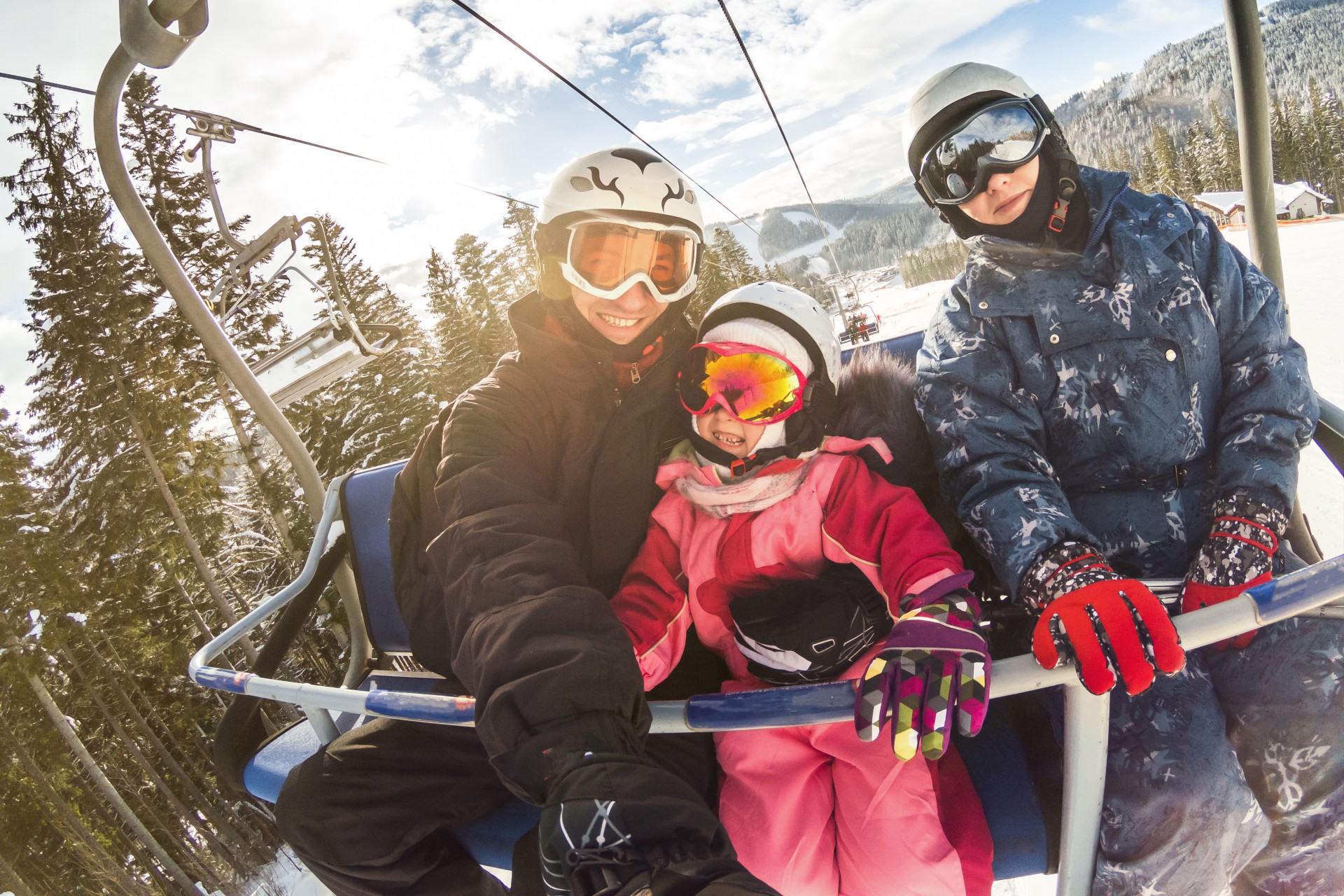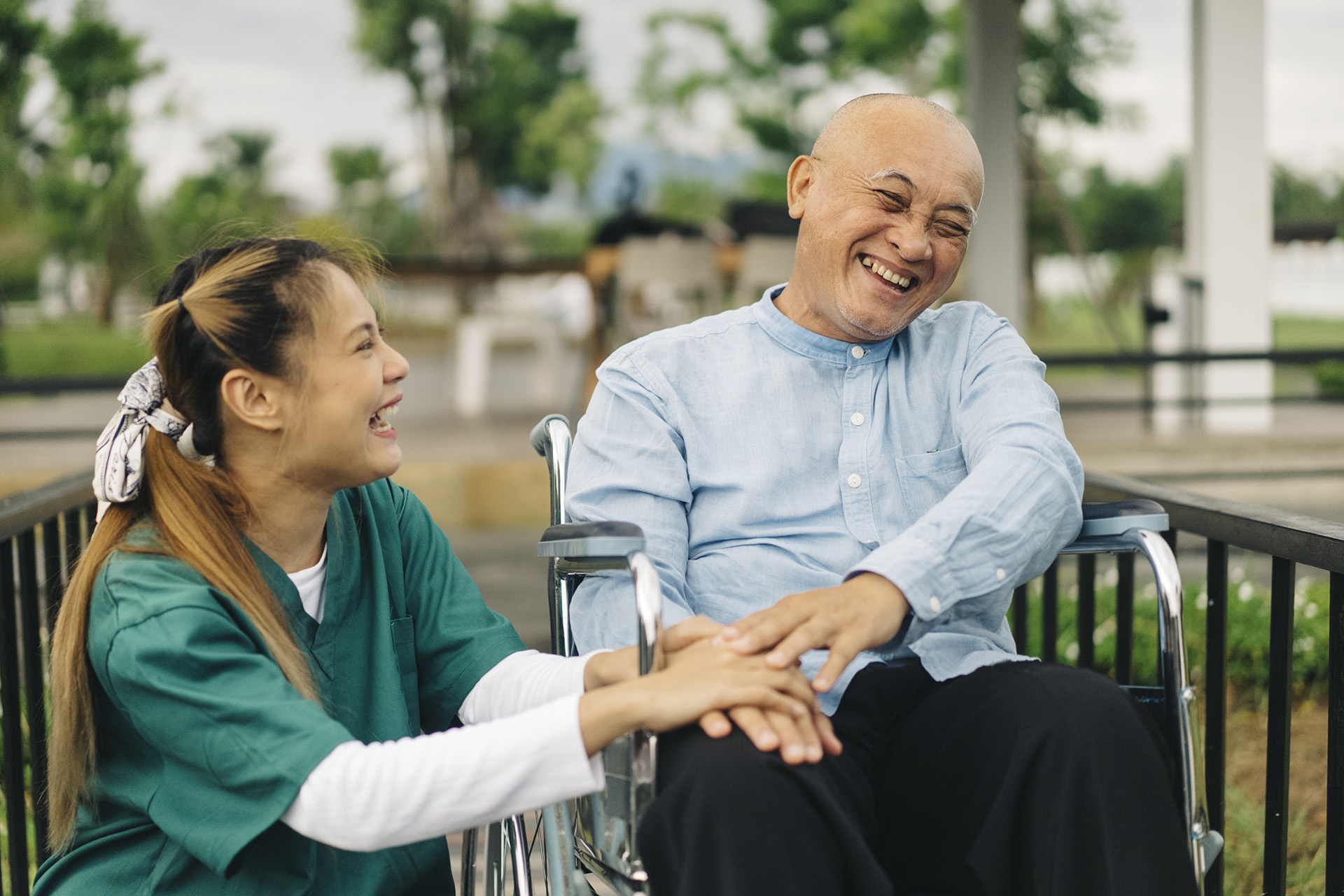As COVID-19 continues to be a serious threat and the pandemic slips into its third year, a safe and healthy activity to engage in is winter sports. Breathe in the fresh air, enjoy heart-healthy exercise, and safely engage with friends outdoors.
Fun and games aside, however, winter sports require precaution to prevent injury. Almost 200,000 people were treated for winter sports injuries in 2019, according to the U.S. Consumer Product Safety Commission. The top 2 culprits were skiing and snowboarding, although ice skating and sledding also made the top 5.
Injuries range from ACL sprains, strains, and dislocations, to more serious injuries such as concussions and broken bones. Below, learn easy tips from Susan Joy, MD, co-director of the Kaiser Permanente Sports Medicine Center, on how to help prevent injury before you hit the snow or ice.
Get in (semi) shape before you start
It’s smart to begin a pre-conditioning routine about 6 to 8 weeks before you start, according to Dr. Joy.
“For skiing and snowboarding, it’s important to work your core, hips, and sides, and begin to get more freedom of lateral movement,” she said.
If you can’t rely strongly on your core, quadricep, or glute muscles, your form can be compromised, leaving you at higher risk for injury. Your program should include stretching, strength conditioning, and cardio at least a few times a week.
Get the right gear and clothing
The right safety gear and equipment are essential to any sport. For downhill sports, a helmet is necessary, as there is a high rate of skull fractures in these activities, said Dr. Joy.
Hand or wrist guards are a smart idea for snowboarding, as wrist fractures are common.
Always dress for cold weather. Wear layers, a quality pair of gloves, and a hat. Hypothermia can occur if one becomes too cold. Also, make sure all your gear, including skis, fits correctly.
For back country skiing, snow shoeing, or hiking, bring water, a flashlight or headlamp, and food. And remember to keep sufficiently hydrated. Lastly, don’t forget to wear sunscreen, an SPF of at least 35.
“You almost always hear skiers say they got injured on the last run of their day. Try to recognize any limitation you may have.” Susan Joy
Warm up before you go
For any physical activity, a dynamic warm up is beneficial, said Dr. Joy.
“It’s good to do a series of walking movements and to stretch the hamstrings, hips, and anywhere you feel tight,” she said. “During your activity, take a couple of stretch breaks.”
She also suggested high knees or jumping jacks beforehand to get the heart rate up.
Don’t overdo it
“You almost always hear skiers say that they got injured on the last run of their day,” Dr. Joy said. “Try to recognize any limitations you may have.”
If you are not in the best shape, slow down or cut your day short. Fatigue greatly increases a chance of injury. Recovery is also important. Take breaks and even a day of rest if you’re doing a multiple day activity.
Be aware of your surroundings
Being mindful of others is a big part of injury prevention. Keep an eye on people traveling behind or near you and be considerate of others. Look out for rocks, trees, or holes.
When it comes to sledding, Dr. Joy said use common sense. Don’t go too fast or attempt too steep of a hill.
If you do get injured, the first step is to protect and elevate the area of injury. Then, alert the appropriate authorities.
And remember, sports are about having fun! So, follow these guidelines, and get out there and experience the joys of winter sports.





This Post Has 0 Comments